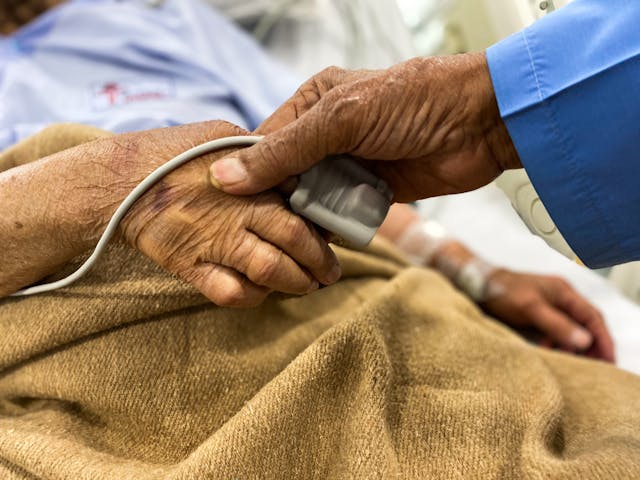- Open communication among family members facilitates understanding, fosters emotional support, and honors end-of-life wishes effectively.
- Ensuring physical comfort through soft bedding, pain management, and soothing activities enhances the dying loved one’s quality of life significantly.
- Seeking professional assistance, particularly through hospice care, offers comprehensive support, including medical care, pain management, and emotional guidance.
- Practicing self-care, setting boundaries, and seeking respite help family caregivers maintain their well-being and prevent burnout during this challenging time.
- Embracing meaningful moments, celebrating life, and creating keepsakes provide comfort and solace, allowing families to cherish memories and find joy amidst grief.
Caring for a dying loved one is an experience that tests the emotional resilience and strength of families. It’s a journey marked by profound moments of connection, deep sorrow, and the need for compassionate support. Whether the end of life is anticipated or sudden, navigating this sensitive time requires careful consideration and understanding. This article will delve into five essential tips to help families provide loving care and find solace during the challenging process of caring for a dying loved one.
1. Open Communication
Communication serves as the cornerstone of any relationship, especially during times of crisis. When a loved one is facing a terminal illness, fostering open and honest dialogue becomes even more crucial. Encouraging family members to share their thoughts, fears, and wishes openly can foster a sense of unity and understanding amidst uncertainty.
Creating a Safe Space:
Establishing a safe and supportive environment where family members can express themselves without fear of judgment is paramount. This safe space encourages trust and emotional intimacy, facilitating more meaningful conversations and connections.

Discussing End-of-Life Wishes:
While discussing end-of-life preferences may be uncomfortable, it is essential. Encourage your loved one to express their desires regarding medical care, funeral arrangements, and any other important decisions. Having these conversations ensures that their wishes are respected and can help alleviate anxiety for both the patient and their family members.
2. Providing Comfort and Support
As a loved one approaches the end of life, ensuring their comfort and well-being becomes a top priority. Simple acts of kindness and support can make a significant difference in their quality of life during this challenging time.
Physical Comfort:
Pay attention to your loved one’s physical comfort by providing soft bedding, adjusting room temperature, and administering pain relief medication as prescribed. Small gestures like gentle massages or playing soothing music can also help alleviate discomfort and promote relaxation.
Emotional Support:
Be present for your loved one emotionally, offering reassurance, companionship, and a listening ear. Validating their feelings and providing comfort through physical touch, such as hugs or holding hands, can offer immense solace during moments of distress.
3. Seeking Professional Assistance
While family members play a vital role in caring for a dying loved one, professional support and guidance can provide invaluable assistance during this challenging time.
Hospice Care:
Consider enlisting the services of a hospice care nurse who specializes in providing comprehensive support for terminally ill patients and their families. Hospice professionals offer medical care, pain management, emotional support, and guidance throughout the end-of-life journey, ensuring that your loved one receives the highest quality of care and comfort.
Counseling Services:
Don’t hesitate to seek counseling or therapy services for yourself or other family members. Dealing with the impending loss of a loved one can take a significant toll on mental health, and professional support can help navigate complex emotions and facilitate healthy coping mechanisms.

4. Practicing Self-Care
Amidst the demands of caregiving, it’s easy for family members to neglect their own well-being. However, prioritizing self-care is essential for maintaining physical and emotional resilience during this challenging time.
Setting Boundaries:
Recognize your limitations and communicate your needs to other family members. Delegate tasks and responsibilities to avoid burnout and ensure that everyone has the opportunity to rest and recharge.
Seeking Respite:
Take breaks from caregiving to engage in activities that let you enjoy and relax. Whether you spend time with friends, pursue hobbies, or simply take a walk in nature, always prioritize activities that replenish your energy and nourish your soul.
5. Embracing Meaningful Moments
In the midst of sorrow and grief, there are still moments of beauty, connection, and love to be cherished. Embracing these precious moments can provide comfort and solace during the difficult journey of caring for a dying loved one.
Celebrating Life:
Instead of solely focusing on the sadness of impending loss, take the time to celebrate the life and legacy of your loved one. Share stories, reminisce about happy memories, and express gratitude for the time you’ve shared together. Celebrating life can help shift the focus from grief to gratitude, allowing you to find joy amidst the sorrow.
Creating Keepsakes:
Consider creating keepsakes or mementos to honor your loved one’s memory. Whether it’s compiling a scrapbook of photos and mementos or planting a memorial garden in their honor, these tangible reminders can provide comfort and solace in the days to come, keeping their memory alive for generations to come.
Caring for a dying loved one is an emotionally taxing journey that requires compassion, strength, and support from family members. By fostering open communication, providing comfort and support, seeking professional assistance, practicing self-care, and embracing meaningful moments, families can navigate this challenging time with grace and resilience. Remember, you are not alone on this journey, and there is help available to support you every step of the way. In the end, the love and care you provide will leave a lasting legacy of compassion and comfort for your loved one during their final days.




